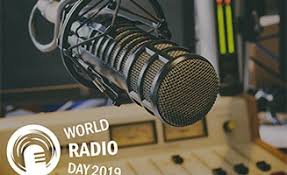Radio is celebrated world over for its life changing attributes especially in developing countries where the development agenda remains a common denominator of all engagements. The UN, set aside the 13th February as a day to celebrate radio. This year’s edition of the World Radio Day(WRD) is commemorated under the theme, Radio: Dialogue, Tolerance and Peace, a theme which is most appropriate to countries like Zimbabwe given its perpetual instabilities and civil unrests and other socio- economic and political challenges facing the Southern African nation.
It is important to note that though there are no licenced community radios in Zimbabwe yet, the community radio initiatives (CRIs) scattered all over the country remain a very critical tool for organising communities especially in marginalised rural communities in Zimbabwe. These continue to share messages of peace and encouraging citizens to remain peaceful using their various community structures.
As we commemorate WRD, there is a need to locate the role of radio in facilitating dialogue in order to promote peace and tolerance. It is against this backdrop that we locate the role radio can play in terms of organising and mobilising communities for peace building, conflict resolution and transformation. In order for this to happen, we need to appreciate some of the qualities of radio which makes it a tool for facilitating dialogue and tolerance particularly community radio which has attributes that encourage citizen participation, development and promotion of local cultures.
Radio can facilitate conversation and interaction between diverse groups in various communities as well as between state and citizens. It is still the most dynamic, reactive and engaging medium there is and is uniquely positioned to bring communities together and foster positive dialogue for change. During the just ended civil unrest in Zimbabwe, CRIs such as 41 FM in Lupane, VeMuganga FM in Chipinge, Ntepe FM in Gwanda, Patsakanyaminyami in Kariba have been providing a platform for debate and discussion utilising mobile based communication platforms as well as community structures. These discussions and debates, facilitated a better understanding of the crisis situation by respective communities. The CRIs became respectable outlets for unhealthy emotions which could have worsened the situation in Zimbabwe.
The CRIs have been able to facilitate interaction between the state (through its various representatives) and citizens to discuss various development issues including economic challenges, conflict resolution, poverty etc. This has seen various duty bearers and solution holders including members of parliament, local councilors, and traditional leaders interacting directly with citizens in order to share ideas on issues affecting people. As a result, citizens have been able to participate in solution-seeking initiatives in a manner which enhances community ownership of development and growth.
As Zimbabwe embraces the call for national dialogue to address the current polarisation, radio can be used as a tool to facilitate citizen participation and contribution in this national dialogue. This will ensure that the national dialogue is not going to remain the preserve of the political elite at the expense of the general populace. So various radio stations wherever they are found must create spaces for citizens to deliberate so that their voices will find expression in this national dialogue. Because of its wide reach and affordability, radio remains indispensable to majority of Zimbabweans and those who live in Zimbabwe with limited access to internet and mainstream print media. There is therefore an adequately compelling reason to license community radios in Zimbabwe as well as promotion of genuine broadcasting pluralism and diversity.

